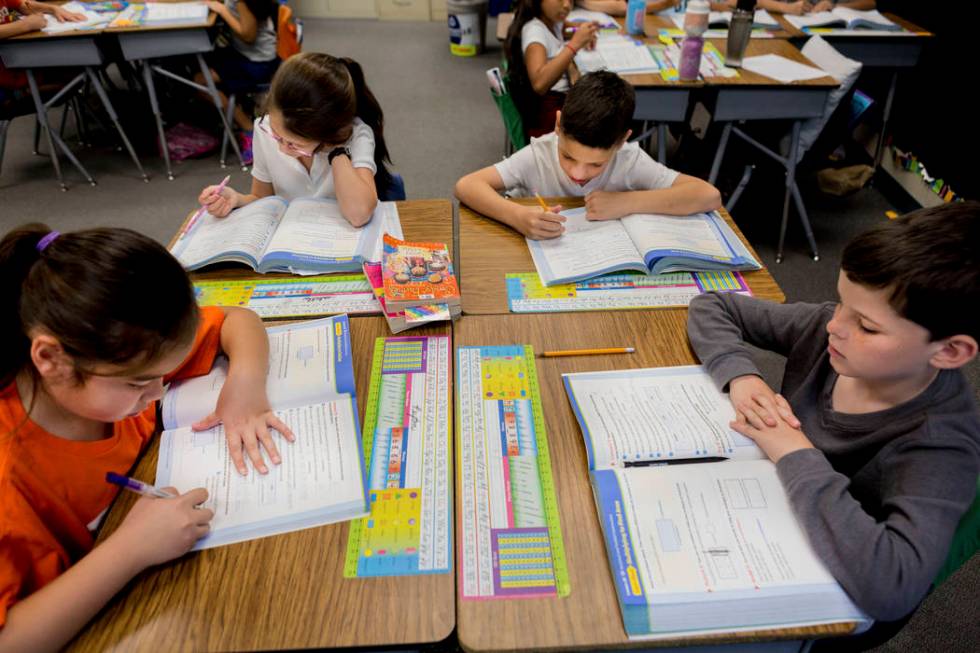Greene discusses Read by 3 and Opportunity Scholarships

The Nevada Legislative Session is over, and the results are mixed for Nevada students, according to Tom Greene, Senior regional legislative director, Excel in Ed in Action.
In 2015, Nevada passed a “Read by 3” law. It contained funding to help struggling readers get to grade level. It also required that schools retain third graders who couldn’t read at grade level, starting at the end of next school year. Assembly Bill 289 modified that law, making retention optional.
“We know that states that have automatic retention in law, where students who are struggling to read in third grade get additional time for promotion, do better in the long run,” Greene said while filming Nevada Politics Today. “In the state of Florida, they went from the bottom to the top of fourth grade reading, because they have automatic retention in law, along with other key provisions that are found in Read by Grade 3 in the state of Nevada.”
Greene said his organization testified against the bill in the Assembly but supported a revised version in the Senate.
The bills still mandates that struggling students “receive additional interventions, supports and resources and the extra time they need to catch up,” he said. “That’s the whole point of retention. Retention’s there to be a trigger for additional supports and interventions. That didn’t go away.”
Greene said his organization’s support for the measure was part of the “compromise” required by the legislative process. Principals now get to decide whether or not to retain a student.
“We believe, in practice, principals are going to hold students back and give them extra time for promotion,” Greene said. “We’ll find out. At the end of the day, what matters is the new law still ensures these students are receiving resources, support and extra time that they need whether it’s during fourth grade or third grade to catch up.”
Greene said he thought it was a mistake to not start the retention part of the Read by 3 earlier.
Another issue with mixed results was Opportunity Scholarships, which allow low-income students to attend private schools.
“We needed an additional $9.5 million in tax credits to ensure not one student loses their scholarship,” Greene said. “That was achieved. That was passed.”
The bad news was that Democrats severely limited the ability of new students to access the program.
“We’re also a little disappointed that the legislature capped the program, basically not allowing new students to be served by this transformative scholarship program,” he said. “At the end of the day, it was a mixed bag.”
Greene believes that program can still earn political support.
“There are going to be other parents who say they want to participate,” Greene said. “So, we’re thankful that the legislature listened to these parents. I think that you’re not going to see this slow down. In fact, I think it’s going to be the opposite. I think you’re going to see a growing momentum and movement of parents across the state.”
Greene wasn’t a fan of efforts to reduce the role of student achievement in teacher evaluations. The law previously required that student achievement account for 40 percent of a teacher’s evaluation. Senate Bill 475 reduces that to 15 percent.
“I’m a former public school teacher,” he said. “I considered 100 percent of my own self-evaluation to be my students’ achievement scores. If they weren’t learning and they weren’t achieving, I wasn’t doing my job as a teacher. I held myself accountable, 100 percent to my students’ success. I think the best teachers in the state of Nevada do that.”